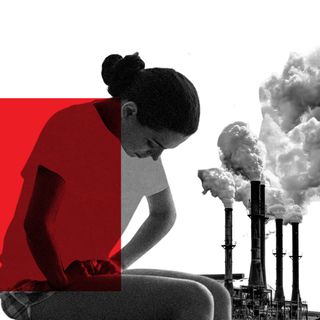
Experiencing Rude Behavior Reduces Our Critical Thinking Skills, Study Shows
“People could be dying because somebody insulted the surgeon before they started operating,” researchers say about rudeness influences medical diagnoses.

Imagine a car that cut you off on your way to work or a colleague who consciously undercut you or interrupted you. Instances of rudeness in the workplace or other spheres have been known to impact our mood and performance, but new research shows how they also interfere with our critical thinking skills.
“Minor rude events like this happen frequently, and you may be surprised by the magnitude of the effects they have on our decision-making and functioning,” researchers from the U.S. wrote in a press release.
The reason lies in what is called the “anchoring bias.” As the name suggests, it is the tendency to get fixated on a suggestion — a piece of information that serves as the “anchor” — when making a decision. The anchoring bias is amplified when we experience rudeness, in that it narrows our perception and impacts decision making.
To illustrate this, researchers ran four simulations across different work spheres: medical diagnosis, negotiations, general knowledge tasks, and judgment tasks.
The application of anchoring bias is most commonly observed in medical cases — a theory researchers were able to prove in the present study. “If you go into the doctor and say ‘I think I’m having a heart attack,’ that can become an anchor and the doctor may get fixated on that diagnosis, even if you’re just having indigestion,” Trevor Foulk, lead author of the study and researcher at the University of Maryland in the U.S., explained. “If doctors don’t move off anchors enough, they’ll start treating the wrong thing.”
In the present study published in the Journal of Applied Psychology, they observed a similar effect. Residents at a hospital were given an incorrect suggestion before they had to diagnose a patient, and before the simulation, they had one doctor behave rudely towards the residents. The result was that the residents kept treating the “anchor” suggestion despite new discoveries.
“Basically, what we’re observing is a narrowing effect. Rudeness narrows your perspective, and that narrowed perspective makes anchoring more likely.”
Related on The Swaddle:
‘Toxic’ Workplace Culture Linked To a Threefold Increase in Risk of Depression, Study Shows
Similar effects were replicated in other tasks. For instance, if someone was asked “Do you think the Mississippi River is shorter or longer than 500 miles?”, the anchoring suggestion of 500 miles tended to narrow people’s ability to zoom in on an answer. Experiencing rudeness makes it more likely that a person will get anchored to the first suggestion they hear.
“We never really did allow aggressive behavior at work. But we’re fine with rudeness, and now we’re learning more and more that small insults are equally impactful on people’s performance.”
In the past, rudeness has been linked to lower worker engagement, reduction in effort, decreased work outputs, and commitment to the organization, lost productivity, increased absenteeism — along with increased stress. A 2013 study showed 98% of the workers surveyed reported experiencing uncivil behavior.
The connection between rudeness and critical thinking not only impacts performance but can also lead to increased mortalities in medical situations. “In simulations, we’re finding that mortality is increased by rudeness. People could be dying because somebody insulted the surgeon before they started operating.”
Based on previous studies, researchers found two ways to counter anchoring bias: perspective-taking (expanding our points of view by stepping in someone else’s shoes metaphorically) and information elaboration (thinking about a situation in a broader way). In the current analysis, researchers found both ways to help in mitigating the bias.
Incivility takes a huge toll, not only on the person and their emotions, but on others too. As Marie Davies writes in Laing Buisson, “it seems to be both a grand claim and at the same time too basic, to believe that something as simple as civility” could indeed save lives.
In the end, the onus should still be on a preventative rather than curative strategy: we should be more cognizant of how we engage with each other — at workplaces or otherwise. The culture of rude and uncivil behavior is rampant in any job setting, and the present findings aim to take stock of the damage negative attitudes can cause. “In important domains, where people are making critical decisions, we really need to rethink the way we treat people,” Foulk said.
“We hear ‘If you can’t stand the heat, get out of the kitchen.’ It’s almost like being able to tolerate people’s treatment of you is like a badge of honor. But the reality is that this bad treatment is having really deleterious effects on performance in domains that we care about — like medicine. It matters.”
Saumya Kalia is an Associate Editor at The Swaddle. Her journalism and writing explore issues of social justice, digital sub-cultures, media ecosystem, literature, and memory as they cut across socio-cultural periods. You can reach her at @Saumya_Kalia.
Related


Severe Menstrual Cramps Linked to Air‑Pollution Exposure: Study
